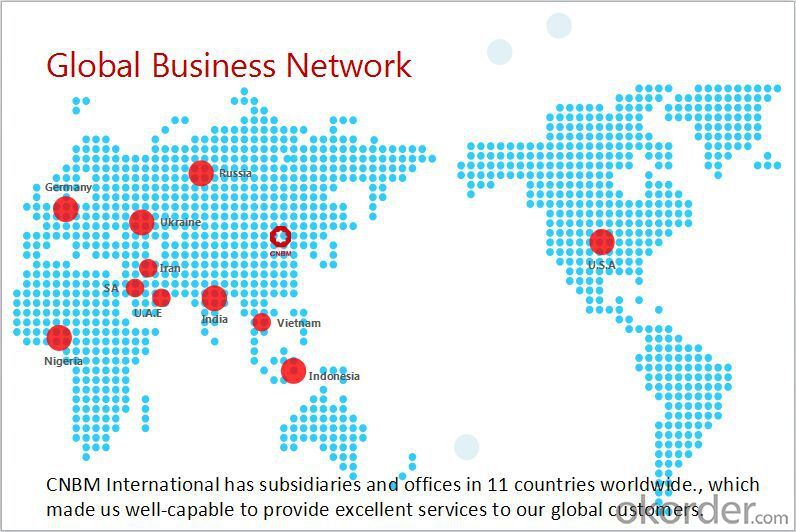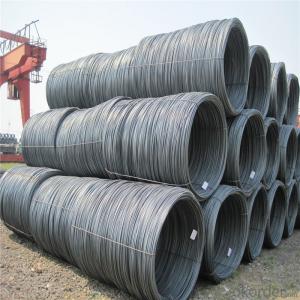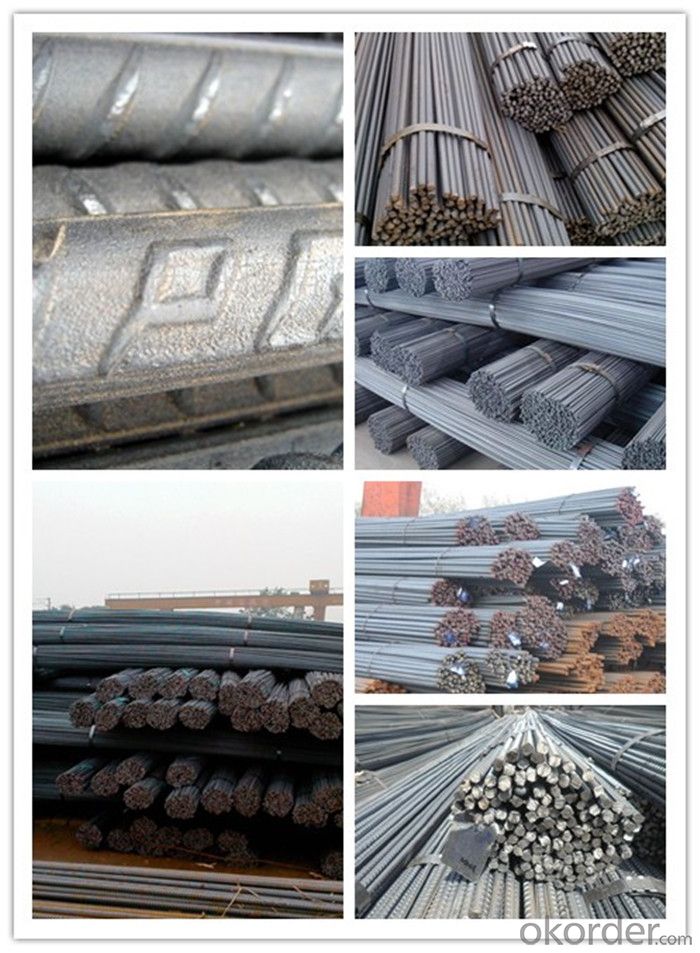Bs Standard Rebar En Standard Import Bars
- Loading Port:
- Tianjin
- Payment Terms:
- TT OR LC
- Min Order Qty:
- 100 m.t.
- Supply Capability:
- 50000 m.t./month
OKorder Service Pledge
OKorder Financial Service
You Might Also Like
Item specifice
Bs Standard Rebar En Standard Import Bars
Description of Bs Standard Rebar:
1, Diameter: 5.5mm-10mm rounds reinforcing steel bar
10m- 40 rods reinforcing Bs Standard Rebar
2, Length: 6m, 9m, 12m or customized
3, Standard: GB, ASTM, AISI, SAE, DIN, JIS, EN
OEM technology - send detailed technical parameters for accurate quotation.
2, Produce Process: smelt iron - EAF smelt billet - ESR smelt billet -
hot rolled or forged to get the steel round bar and plate
3, Heat Treatment: annealing, normalizing, tempering, quenching
4, Surface Treatment: Black
5, Quality Assurance: We accept third party inspection for all orders.
You can ask testing organizations such as SGS, BV, etc. to test our products before shipping.
Chemical Composition of Bs Standard Rebar:
Grade | Technical data of the original chemical composition(%) | |||||
Reinforcing steel bar HRB335 | C | Mn | Si | S | P | B |
≤0.25 | ≤1.60 | ≤0.80 | ≤0.045 | ≤0.045 | >0.0008 | |
Physics Capability | ||||||
Yield Strength(N/cm2) | Tensile Strength(N/cm2) | Elongation(%) | ||||
≥ 335 | ≥490 | ≥16 | ||||
Reinforcing steel bar HRB400 | C | Mn | Si | S | P | B |
≤0.25 | ≤0.16 | ≤0.80 | ≤0.045 | ≤0.045 | 0.04-0.12 | |
Physics Capability | ||||||
Yield Strength(N/cm2) | Tensile Strength(N/cm2) | Elongation(%) | ||||
≥ 400 | ≥ 570 | ≥ 14 | ||||
Product Show of Bs Standard Rebar:
Company Information:
CNBM International Corporation is the most important trading platform of CNBM group.
Whith its advantages, CNBM International are mainly concentrate on Cement, Glass, Iron and Steel, Ceramics industries and devotes herself for supplying high qulity series of refractories as well as technical consultancies and logistics solutions.


FAQ:
1, Your advantages?
professional products inquiry, products knowledge train (for agents), smooth goods delivery, excellent customer solution proposale
2, Test & Certificate?
SGS test is available, customer inspection before shipping is welcome, third party inspection is no problem
3, Factory or Trading Company?
CNBM is a trading company but we have so many protocol factories and CNBM works as a trading department of these factories. Also CNBM is the holding company of many factories.
4, Payment Terms?
30% TT as deposit and 70% before delivery.
Irrevocable L/C at sight.
5, Trading Terms?
EXW, FOB, CIF, FFR, CNF
6, After-sale Service?
CNBM provides the services and support you need for every step of our cooperation. We're the business partner you can trust.
For any problem, please kindly contact us at any your convenient time.
We'll reply you in our first priority within 24 hours.
- Q:How does special steel perform in food processing applications?
- Special steel performs exceptionally well in food processing applications. Its unique properties such as high corrosion resistance, heat resistance, and hygienic surface finish make it ideal for use in equipment and machinery that come into direct contact with food. Special steel's resistance to chemicals and bacteria growth ensures that the food processing environment remains safe and contamination-free. Additionally, its durability and strength allow for efficient and reliable operation, contributing to the overall effectiveness of food processing operations.
- Q:What are the different methods for improving the fatigue strength of special steel?
- There are various methods for improving the fatigue strength of special steel, including surface treatments such as shot peening, nitriding, and carburizing. Heat treatments like quenching and tempering can also enhance fatigue strength. Additionally, alloying elements can be added to the steel composition to improve its resistance to fatigue. Lastly, optimizing the steel's microstructure through processes like grain refinement and precipitation hardening can contribute to increased fatigue strength.
- Q:What is the chemical composition of special steel?
- Special steel is a broad term that encompasses a variety of steel alloys with specific properties and characteristics. The chemical composition of special steel can vary depending on the specific grade or type of steel being referred to. However, in general, special steel often contains higher amounts of alloying elements compared to regular carbon steel. These alloying elements can include elements such as chromium, nickel, molybdenum, vanadium, tungsten, and others. The specific combination and proportion of these alloying elements determine the unique properties of special steel, such as increased strength, enhanced corrosion resistance, improved heat resistance, or better wear resistance. For example, some common types of special steel include stainless steel, which typically contains high amounts of chromium and nickel, providing excellent corrosion resistance; tool steel, which has high carbon content and often contains other elements like vanadium or tungsten, making it suitable for cutting, drilling, or shaping tools; and high-speed steel, which contains elements like molybdenum, cobalt, or tungsten, giving it exceptional hardness and heat resistance for use in cutting tools or drills. In summary, the chemical composition of special steel varies depending on the specific type or grade, but it generally includes higher amounts of alloying elements to achieve desired properties such as strength, corrosion resistance, heat resistance, or wear resistance.
- Q:How does special steel contribute to the oil and gas machinery industry?
- The oil and gas machinery industry heavily relies on special steel due to its wide range of essential properties and characteristics. Its exceptional strength and durability allow it to withstand the extreme forces and pressures involved in oil and gas extraction, transportation, and refining processes. This ensures reliable and efficient machinery operation, minimizing downtime and maintenance costs. Special steel also possesses excellent corrosion resistance, which is crucial in an industry where equipment is constantly exposed to corrosive environments like seawater, acidic gases, and high-temperature fluids. Using corrosion-resistant special steel increases machinery lifespan, reduces equipment failure risk, and enhances overall safety. Moreover, special steel exhibits high temperature resistance, which is vital in this industry where equipment operates at extremely high temperatures, especially in drilling, refining, and petrochemical production processes. Special steel alloys maintain their structural integrity under these elevated temperatures, ensuring safe and efficient machinery functioning. Additionally, special steel offers exceptional wear and abrasion resistance properties, making it ideal for components exposed to constant friction such as valves, pumps, and drilling tools. This wear and abrasion resistance prolongs component lifespan, reduces maintenance needs, and enhances overall machinery efficiency. In summary, special steel significantly contributes to the oil and gas machinery industry by providing the necessary strength, durability, corrosion resistance, high temperature resistance, and wear resistance required for demanding operating conditions. By utilizing special steel alloys, manufacturers can create robust and reliable machinery capable of withstanding the challenges of the oil and gas industry, ensuring the smooth and safe extraction, transportation, and processing of oil and gas resources.
- Q:How does special steel contribute to the transportation equipment industry?
- Special steel plays a crucial role in the transportation equipment industry by providing high strength, durability, and resistance to wear and corrosion. It allows for the construction of lighter yet stronger components, leading to improved fuel efficiency, increased payload capacity, and enhanced safety in vehicles. Additionally, special steel enables the production of precision parts and components, ensuring the reliability and performance of transportation equipment.
- Q:What are the main factors affecting the fracture toughness of special steel?
- The fracture toughness of special steel is influenced by several main factors. 1. Alloy composition: The specific chemical composition of the steel, including the type and amount of alloying elements, greatly affects its fracture toughness. Elements like chromium, nickel, and molybdenum can improve the toughness by promoting the formation of fine-grained microstructures or enhancing the steel's ability to resist crack propagation. 2. Heat treatment: The heat treatment process, including the temperature and duration of heating and cooling, plays a crucial role in determining the fracture toughness. Proper heat treatment can refine the microstructure and eliminate potential defects, enhancing the steel's resistance to fracture. 3. Microstructure: The microstructure of the steel, such as grain size and distribution, phase composition, and presence of inclusions, significantly affects its fracture toughness. Fine-grained structures generally exhibit higher toughness due to improved resistance to crack propagation. 4. Presence of defects: The presence of defects like cracks, voids, or inclusions in the steel can act as stress concentrators, reducing its fracture toughness. These defects can initiate cracks and propagate them more easily, leading to lower toughness. 5. Temperature: Fracture toughness is temperature-dependent, and the behavior of special steel can vary significantly at different temperatures. Some steels exhibit improved toughness at low temperatures due to the transformation of the microstructure, while others may experience reduced toughness at elevated temperatures due to the softening of the material. 6. Loading conditions: The fracture toughness of special steel can also be influenced by the loading conditions, such as the rate of loading or the presence of dynamic loading. Higher loading rates or dynamic loading can result in reduced toughness as the steel may not have sufficient time to deform and absorb energy before fracture. 7. Mechanical properties: The mechanical properties of the steel, such as strength, hardness, and ductility, can affect its fracture toughness. Higher strength and hardness can sometimes lead to lower toughness, as the material becomes more brittle. However, a balance between strength and toughness can be achieved by carefully selecting the alloy composition and heat treatment parameters. Overall, the fracture toughness of special steel is a complex interplay of various factors, including alloy composition, heat treatment, microstructure, defects, temperature, loading conditions, and mechanical properties. Optimizing these factors can help enhance the fracture toughness of special steel for specific applications.
- Q:How does special steel contribute to the telecommunications machinery industry?
- Special steel plays a crucial role in the telecommunications machinery industry by providing high strength, durability, and corrosion resistance. It is used in the manufacturing of various components such as towers, antennas, cables, and connectors, ensuring reliable and long-lasting infrastructure for communication networks. Additionally, special steel's exceptional electrical conductivity properties make it ideal for transmitting signals with minimal loss. Overall, special steel contributes to the telecommunications machinery industry by enabling efficient and reliable communication systems.
- Q:What are the different types of maraging steel?
- There are several different types of maraging steel, including Maraging 200, Maraging 250, Maraging 300, and Maraging 350. Each type has different composition and properties, but they all share the common characteristic of being a high-strength, low-alloy steel that can be heat treated to achieve exceptional strength and toughness.
- Q:How does special steel perform under high-temperature oxidation?
- Special steel is engineered to exhibit outstanding performance when exposed to high temperatures, particularly in terms of oxidation. It is fabricated utilizing alloys that possess a significant quantity of chromium, which generates a shielding chromium oxide layer on the steel's surface once confronted with elevated temperatures. This chromium oxide layer acts as a barrier, thwarting further oxidation and safeguarding the steel against corrosion. The generous amount of chromium present in special steel also heightens its resistance to scaling, which refers to the development of thick layers of oxide on the steel's surface. Scaling can compromise the steel's integrity and result in failure when subjected to high temperatures. Nonetheless, special steel retains its structural soundness even at elevated temperatures due to its capacity to resist scaling. Apart from chromium, special steel may contain additional alloying elements like nickel, molybdenum, and vanadium. These elements contribute to the steel's resistance to high-temperature oxidation by further augmenting the formation and stability of the protective oxide layer. Overall, special steel exhibits exceptional performance under high-temperature oxidation circumstances. Its distinctive composition and alloying elements enable it to establish a protective oxide layer, resist scaling, and retain its strength and integrity even at elevated temperatures. As a result, it is extensively utilized in various industries that involve high-temperature applications, including power generation, aerospace, and petrochemical industries.
- Q:How does special steel contribute to the pharmaceutical aftermarket industry?
- Special steel plays a crucial role in the pharmaceutical aftermarket industry by offering several benefits that contribute to the overall efficiency and quality of pharmaceutical products. Firstly, special steel is highly resistant to corrosion and wear, making it ideal for manufacturing pharmaceutical equipment such as tanks, vessels, and pipelines. This resistance ensures that the equipment remains intact and free from contaminants, preventing any potential contamination of pharmaceutical products. Moreover, special steel possesses excellent heat resistance properties, allowing it to withstand high temperatures without deforming or degrading. This is particularly important in pharmaceutical manufacturing processes that involve the use of heat, such as sterilization or drying. The heat resistance of special steel ensures that the equipment remains stable and reliable throughout these processes, guaranteeing the safety and efficacy of pharmaceutical products. Furthermore, special steel is known for its high strength and durability, enabling it to withstand rigorous usage in the pharmaceutical industry. This is particularly important in the aftermarket industry, where pharmaceutical equipment may undergo frequent repairs or modifications. The strength and durability of special steel ensure that the equipment can be easily maintained and repaired, reducing downtime and minimizing costs for pharmaceutical companies. Additionally, special steel offers excellent hygiene properties, as it can be easily cleaned and sanitized. This is crucial in the pharmaceutical industry, where strict hygiene standards are essential to prevent any contamination or cross-contamination of pharmaceutical products. The ease of cleaning and sanitization provided by special steel ensures that pharmaceutical equipment remains free from any potential sources of contamination, maintaining the integrity and quality of the products. In summary, special steel contributes significantly to the pharmaceutical aftermarket industry by providing corrosion resistance, heat resistance, strength, durability, and excellent hygiene properties. These features ensure the integrity, safety, and efficacy of pharmaceutical products, while also reducing maintenance costs and downtime for pharmaceutical companies. Therefore, special steel plays a vital role in the overall efficiency and success of the pharmaceutical aftermarket industry.
1. Manufacturer Overview |
|
|---|---|
| Location | |
| Year Established | |
| Annual Output Value | |
| Main Markets | |
| Company Certifications | |
2. Manufacturer Certificates |
|
|---|---|
| a) Certification Name | |
| Range | |
| Reference | |
| Validity Period | |
3. Manufacturer Capability |
|
|---|---|
| a)Trade Capacity | |
| Nearest Port | |
| Export Percentage | |
| No.of Employees in Trade Department | |
| Language Spoken: | |
| b)Factory Information | |
| Factory Size: | |
| No. of Production Lines | |
| Contract Manufacturing | |
| Product Price Range | |
Send your message to us
Bs Standard Rebar En Standard Import Bars
- Loading Port:
- Tianjin
- Payment Terms:
- TT OR LC
- Min Order Qty:
- 100 m.t.
- Supply Capability:
- 50000 m.t./month
OKorder Service Pledge
OKorder Financial Service
Similar products
New products
Hot products
Related keywords

































